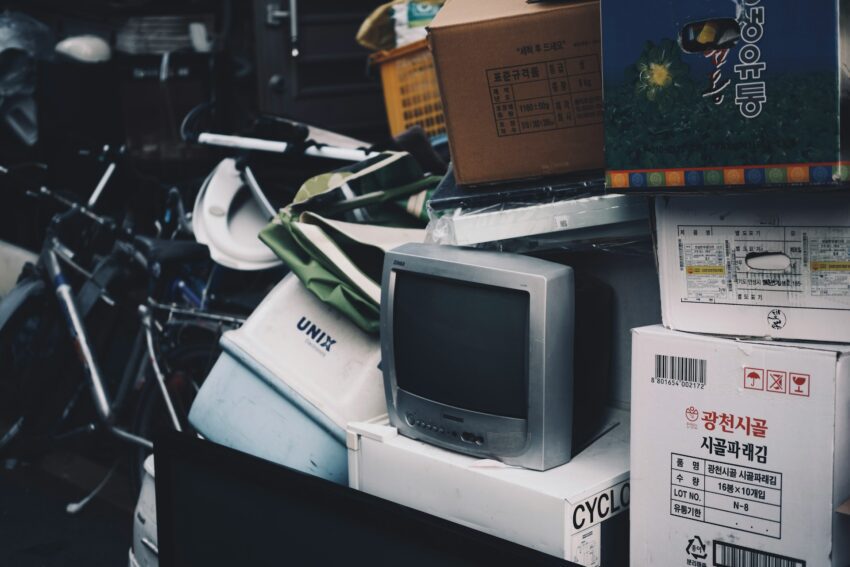Key Takeaways:
- Discerning the environmental relevance of correct TV disposal practices.
- Evaluating disposal pathways: recycling, donating, upcycling, and employing professional TV haul-away services.
- Remaining alert and informed on the latest advancements and regulations in electronic waste management.
Introduction
With ever-advancing screen resolutions and intelligent technology features, televisions are frequently replaced, making it increasingly paramount to address their disposal. As environmental awareness grows, it’s crucial to understand the sustainability implications and ethical choices for disposing of our electronics. Whether through recycling or professional TV haul-away services, individuals today seek greener alternatives that contribute to a circular economy and reduce landfill waste.
How to Prepare Your TV for Safe Disposal or Recycling
Proper preparation is critical to ensure the fastest and most secure transition to a television’s following lifecycle. For contemporary smart TVs, this includes factory resetting the system to safeguard personal information. Physically cleaning the device and gathering all accessories makes it easier for the following user or recycler to process the unit. Whether one chooses to donate, recycle, or enlist the services of a competent TV haul away company, the preparation step underscores the commitment to environmentally responsible disposal.
The Environmental Consequences of Improper TV Disposal
When a television ends up in a landfill, the consequence is more than just lost space; it becomes a source of hazardous pollution. If not disposed of properly, the materials within televisions can release toxic elements that contaminate our soil and waterways, impacting wildlife and human populations. Moreover, the slow decomposition of electronic waste exacerbates these issues, causing long-term ecological damage. By exploring recent findings, such as those discussed in Understanding the Environmental Impact, we can appreciate the full scope and scale of the impact that e-waste, including discarded televisions, has on the environment.
The Benefits of Recycling Old Televisions
On the flip side, when a television is recycled, precious metals and other valuable materials can be recovered. Obtaining raw materials from the Earth and turning them into new components requires much more energy than recycling existing materials, conserving resources, and saving energy. As a result, there’s a reduced demand for mining, lower greenhouse gas emissions, and less environmental disruption. Ultimately, this process aligns with sustainability goals and bolsters the growing emphasis on ecological conservation in consumer habits.
Navigating Your Local TV Disposal Options
Communities around the globe are recognizing the importance of proper e-waste disposal and are setting up convenient systems for their residents. Local governments often partner with e-waste recycling firms to hold collection days where people can bring their old electronics. Moreover, waste management facilities may have designated e-waste bins or sections to ensure effective sorting and recycling. It takes minimal research for any eco-conscious individual to find these opportunities, which pave the way for responsible disposal and recycling of outdated televisions.
Guidelines for Donating Your Used Television
When upgrading to a newer television model, the older yet functioning unit can serve a valuable purpose through donation. Not-for-profit organizations, schools, and community centers often use second-hand TV well. However, it’s essential to assess the working condition of the electronic, as many entities cannot utilize or refurbish a broken set. Ensuring that the television is usable is the first step to a successful donation, which can enrich educational settings or provide entertainment to those who may not otherwise have access.
Upcycling: Creative Ways to Repurpose an Old Television
For the artistically inclined or the DIY enthusiast, an old television set presents a canvas for creativity. Upcycling – converting waste materials into new products of better quality or for better environmental value – is an innovative and fulfilling way to reuse electronics. Converting such relics into artsy aquariums, retro furniture, or unique décor pieces isn’t just a clever way to recycle; it’s a statement about rethinking waste and valuing resourcefulness.
The Role of Extended Producer Responsibility in TV Disposal
Extended Producer Responsibility (EPR) is increasingly part of global sustainability dialogues. EPR mandates that manufacturers bear a degree of responsibility for their products’ afterlife, encouraging them to design with recyclability in mind. This transformative approach inspires innovation in the design process to reduce e-waste. Understanding this concept in depth, for instance, through resources like EPR Policies and the Circular Economy, highlights the meaningful impact EPR can have on managing e-waste and fostering a recycling culture.
Staying Informed: Best Practices for Electronic Waste Disposal
The landscape of e-waste management is constantly evolving, making it vital for consumers to stay informed. One should keep an eye on updated disposal protocols, innovative recycling technologies, or changes in legal frameworks. By regularly visiting municipal waste management websites, attending community environmental initiatives, and keeping up with trustworthy media outlets, individuals can stay apprised of the best practices for responsibly disposing of their electronic waste.
Conclusion
In conclusion, responsible TV disposal is vital for the prosperity of our planet. Each stage of the disposal process, from preparing the electronics for recycling to selecting the most eco-friendly disposal method, showcases our commitment to a healthier environment. By staying aware of the various outlets for disposing of televisions—whether through professional TV haul-away services, recycling programs, or creative upcycling endeavors—we contribute to the well-being and sustainability of our world.


